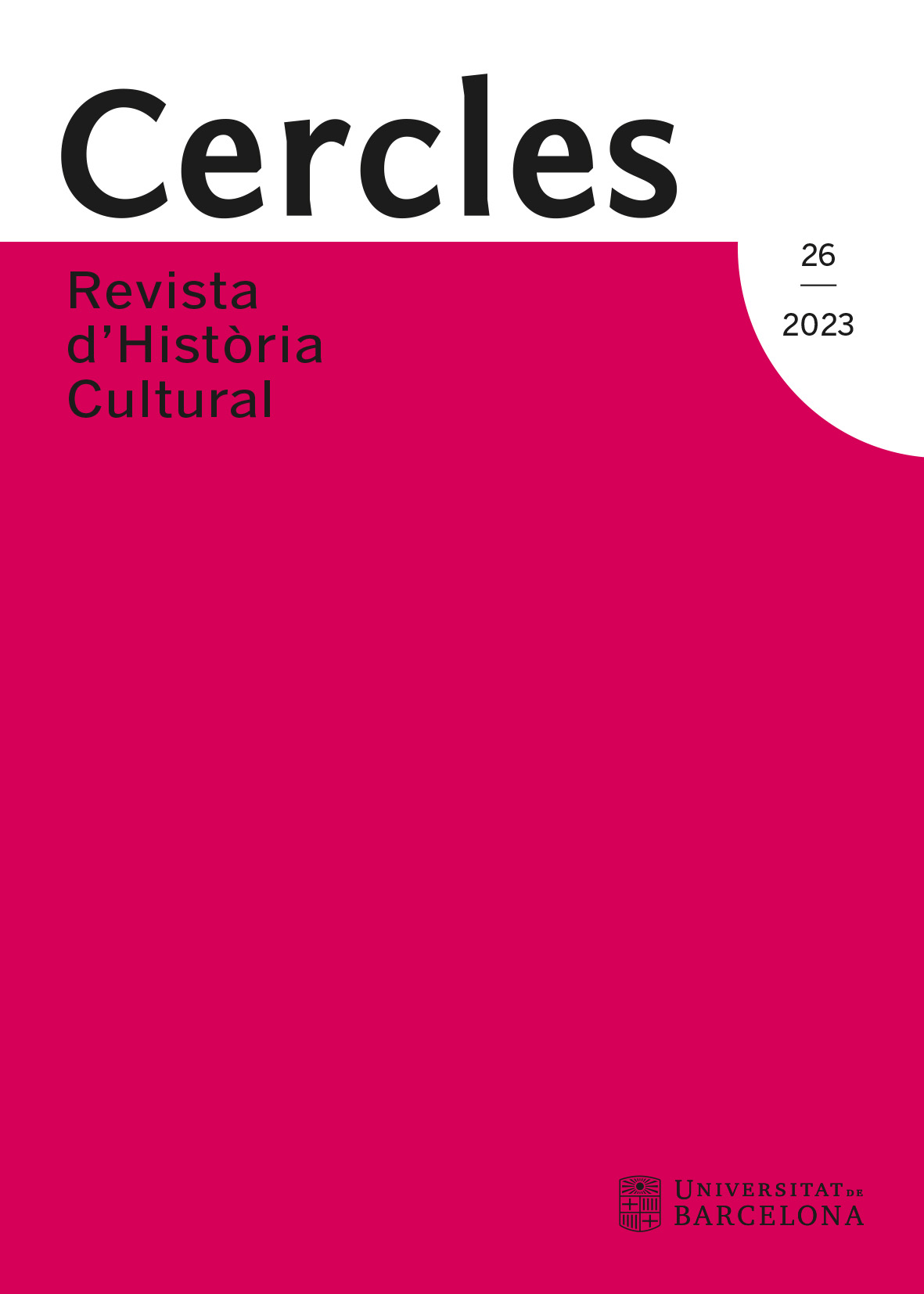El Paral·lel: absence of the question. From oblivion to a debate on its study
DOI:
https://doi.org/10.1344/cercles2023.26.1001Keywords:
Paral·lel, leisure time, masses, popular classes, sociability historyAbstract
The relevance of Paral·lel avenue in Barcelona, from the end of the 19th century until the Spanish Civil War (1936-1939), contrasts with the following lack of interest of the historiography regarding this space. Its importance surpasses the cultural field, because it became an interclassist social meeting point where a massive new leisure offer could be found and which eased the appearance of a new “Barcelonian consciousness”. With some exceptions and despite the persistence of a certain bohemian mystique and the popular memories of those years, only recently have which certain more systematic historiographical investigations appeared, related to the socialization of the Barcelonians in Paral·lel. It is possible that this neglect is due to a classist point of view linked to a group of thinkers and liberal professionals, who came mostly from the Noucentisme movement and stigmatised this place and its cultural production. But it is also due to a series of less explicit factors, such as the back of development of the history of the sociability in Catalonia or Spain.
The sources that have been used to investigate Paral·lel are basically literary ones: memoirs, newspapers, etc. Despite their obvious importance, we need to work with other typologies to complement information which in the end is subjective, a characteristic reinforced by the supremacy of the experience account and the strength of anthropological concepts in the current cultural historiography. For this reason, the author suggests finding a balance point in the research of Paral·lel or similar “district pleasures”: to give more importance to quantitative sources and exercise greater containment regarding the supremacy of more theoretical and anthropological thoughts.
However, the study of the type of sociability which took place in Paral·lel avenue, an informal one, is significantly handicapped. The evidence is fragmentary and not so abundant as the evidence left by more formal sociability, such as the athenaeums or associations.
Downloads
Published
Issue
Section
License
The authors who publish in this journal agree to the following terms:- Authors retain copyright and grant the journal the right of first publication.
- Texts will be published under a Creative Commons Attribution License that allows others to share the work, provided they include an acknowledgement of the work’s authorship, its initial publication in this journal and the terms of the license.




